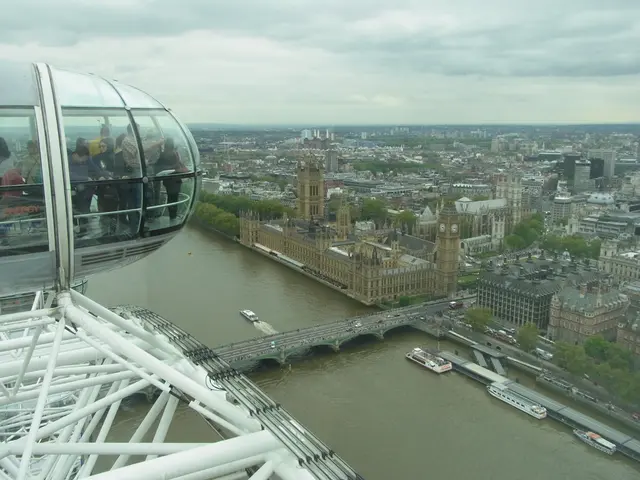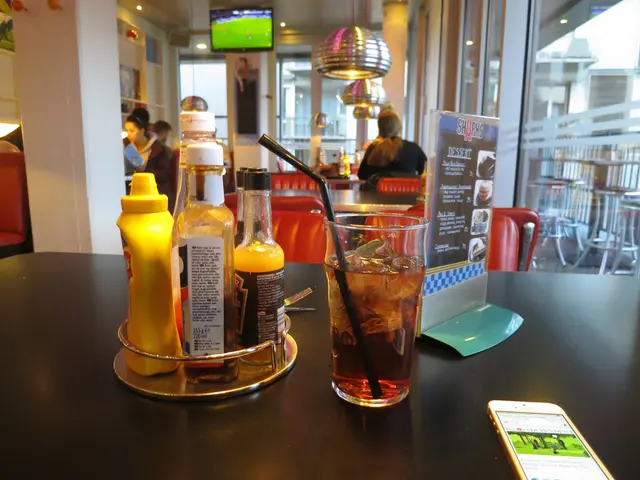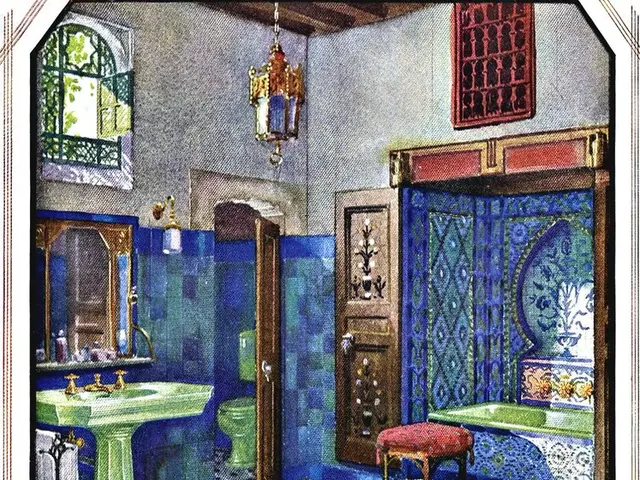The Financial Crisis Plaguing France's Top Flight
Struggles in Farmers League: Prideful PSG Warns of Potential Bankruptcy for Other French Clubs
Football fans across Europe have a favorite pastime: bashing other leagues. The English Premier League is often at the receiving end of this, arrogantly labeled as the cream of the crop. French Ligue 1, on the other hand, is frequently dismissed as a "farmers' league." Nevertheless, one club continues to rise above the rest: Paris Saint-Germain (PSG).
With a dominant 10 French titles in the last 12 years, including their 2024/25 Champions League final appearance after defeating four English teams, it's no wonder coach Luis Enrique chuckled at the "farmers' league" jab. Yet, PSG's success story doesn't elevate the status of Ligue 1. After all, they already clinched the title this season, leading second-placed Marseille by a whopping 19 points.
Their colossal budget, powered by Qatar Sports Investments (QSI), far surpasses that of other French clubs. In the 2021/22 season alone, they spent an unprecedented €729 million on wages, and even after superstars like Lionel Messi, Neymar, and Kylian Mbappé departed, their wage fund remains on par with those of powerhouse clubs like Real Madrid, Manchester City, and Barcelona.
Whereas PSG revels in its wealth and accomplishments, most other Ligue 1 clubs are battling to stay afloat. A gloomy €1.2 billion in operational losses for the 2024/25 season was announced by the French football financial regulator (DNCG). Lack of revenue from TV rights, their primary source of income, has been the main culprit. For mid-table and lower-tier Ligue 1 clubs, this revenue comprises a staggering 50% to 67% of their budget.
A Disastrous TV Rights Deals and Its Aftermath
The TV rights sale and the sale of talents to wealthier clubs have been the lifeblood of Ligue 1 clubs. While TV revenue makes up only 20% of PSG's budget, for other clubs, it's a different story entirely. Unfortunately, a disastrous deal with Spanish multimedia group Mediapro in 2020 has adversely affected the financial standing of Ligue 1 clubs.
Despite agreeing to pay €3.25 billion for the weekly broadcast of eight out of nine matches for four seasons and an additional €330 million per year for the central match to Ligue 1, Mediapro terminated the deal just three months later citing COVID-19 pandemic-related losses. Clubs were forced to survive on government-guaranteed bank loans, and Ligue 1 signed a deal with Amazon for €275 million per season, a far cry from the Mediapro deal.
Investigation and scandals surrounding the Mediapro deal have worsened the situation. Reports of a €37.5 million payment to LFP employees and third parties surfaced, which allegedly came from the deal proceeds[1]. French National Financial Prosecutor's Office started an investigation and even raided league offices and President Vincent Labrune's office in the fall of 2024.
A Vicious Cycle of Bad Deals and Financial Struggles
The ongoing legal dispute with DAZN, a British streaming service, exemplifies the repercussions of bad TV rights deals. Despite signing a deal worth €400 million for five seasons, DAZN suspended payments, leading the league to activate its reserve fund and adopt austere measures such as cutting travel expenses, scrapping training center projects, and downsizing staff.
The negative publicity surrounding the league has made it difficult for Ligue 1 to secure a stable broadcaster. Desperate for a solution, the league is considering launching its own streaming channel[4]. DAZN, meanwhile, has expressed interest in re-partnering, expressing willingness to invest €100 million in the project. This development comes as Canal+, the most popular broadcaster in France, has also expressed interest in the new venture.
As Ligue 1 grapples with the fallout from poor deal-making, rethinking broadcasting models and exploring alternative revenue streams will be crucial for its survival. The future of France's top-tier football league hinges on finding a viable solution and shedding its "farmers' league" label.
[1] L'Équipe[2] SportBusiness[3] The Guardian[4] Bloomberg
Insights for Better Understanding
- Broadcasting Rights Impact: The majority of Ligue 1 clubs heavily rely on TV rights for financial stability. The loss or reduction of this income stream severely impacts their budgets.
- Stable Partnerships: Unlike other major leagues like the English Premier League or Spanish La Liga, which have more robust and stable broadcasting deals, Ligue 1 faces a permacrisis in securing consistent and high-value broadcasting contracts.
- Dependence on Talent Sales: In contrast to other leagues that have multiple revenue streams such as merchandising and sponsorships, Ligue 1 clubs primarily rely on talent development and sales.
- Potential DTC Streaming Service: Launching a direct-to-consumer (DTC) streaming service could offer Ligue 1 more control over content and marketing but requires significant investment without guaranteed returns.
- Alternative Revenue Sources: The league might need to explore alternative models that ensure financial stability, such as diversifying revenue streams beyond broadcasting rights.
- The catastrophic TV rights deal with Mediapro exacerbated the financial troubles faced by Ligue 1 clubs, leading to a reliance on government-guaranteed loans and a deal with Amazon worth significantly less.
- As a result of these poor deals, Ligue 1 is considering launching its own DTC streaming channel, hoping it would provide more control over content and marketing.
- This vicious cycle of bad deals and financial struggles has made it difficult for Ligue 1 to secure stable broadcasters, perpetuating its financial instability.
- In light of these challenges, exploring alternative revenue sources and rethinking broadcasting models is crucial for the survival of France's top-tier football league and its efforts to escape the "farmers' league" label.








